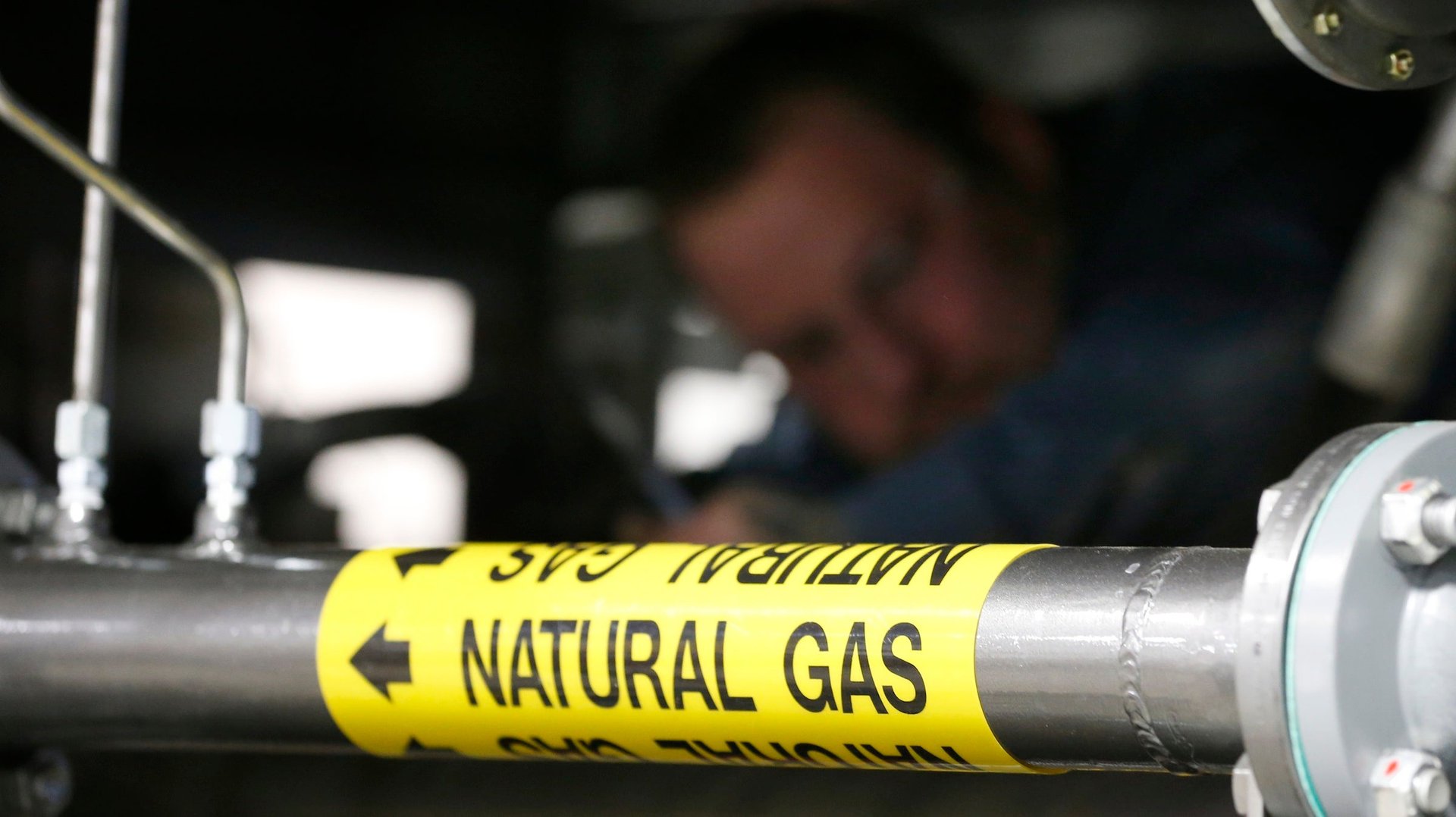American LNG exports get the go-ahead
Corporate America loves the US’s shale gas boom—but when it comes to exporting the stuff, companies are divided. Fossil-fuel producers like ExxonMobil are all in favor of building liquefied natural gas (LNG) terminals so they can sell the gas to more markets, but manufacturers (such as chemical giants) that have started building factories in the US again fear that exports will squeeze the domestic supply and make gas more expensive for them. And environmentalists also tend to oppose exports, since they oppose an expansion of fossil fuel production in general.


Corporate America loves the US’s shale gas boom—but when it comes to exporting the stuff, companies are divided. Fossil-fuel producers like ExxonMobil are all in favor of building liquefied natural gas (LNG) terminals so they can sell the gas to more markets, but manufacturers (such as chemical giants) that have started building factories in the US again fear that exports will squeeze the domestic supply and make gas more expensive for them. And environmentalists also tend to oppose exports, since they oppose an expansion of fossil fuel production in general.
Today the export crowd scored a victory. The US Department of Energy (DOE) gave Freeport LNG approval to export natural gas to countries that do not maintain free-trade agreements (FTAs) with the US. (US policy favors exports to its free-trade partners; gas exports to non-free trade countries need separate permission.)
Freeport is only the second company to get this sort of permit. Its facility on Quintana Island, on the Texas coast just south of Houston, had obtained approval in 2011 to export LNG to the 17 countries that have signed FTAs with the United States. That same year, DOE approved non-FTA exports from the Sabine Pass LNG Terminal in Cameron Parish, Louisiana, but since then new permits had been on hold because of lobbying from opponents.
In today’s decision, DOE approved the export of 1.4 billion cubic feet of natural gas a day for 20 years from an expansion of Freeport’s existing LNG terminal. The department relied on two studies that found that while exporting LNG could raise natural gas costs in the US somewhat, the international market would keep prices in check, because, the decision reads, “importers will not purchase US exports if US wellhead price rises above the cost of competing supplies.” No doubt it was also swayed by Freeport’s argument that LNG would create as many as 21,000 jobs and pump as much as $5.2 billion a year into the economy between 2015 and 2040.
Not surprise then that shale gas producers such as ExxonMobil supported Freeport’s bid while the American Public Gas Association, a trade group of gas distribution companies, opposed it. Dow Chemical too urged DOE not to approve the LNG exports, arguing it would raise manufacturing costs, and the environmentalist Sierra Club also weighed in. “Exporting LNG will lead to more drilling— and more drilling means more fracking, more air and water pollution, and more climate fueled weather disasters,” Deb Nardone, director of the Sierra Club’s Beyond Natural Gas campaign, said in a statement.